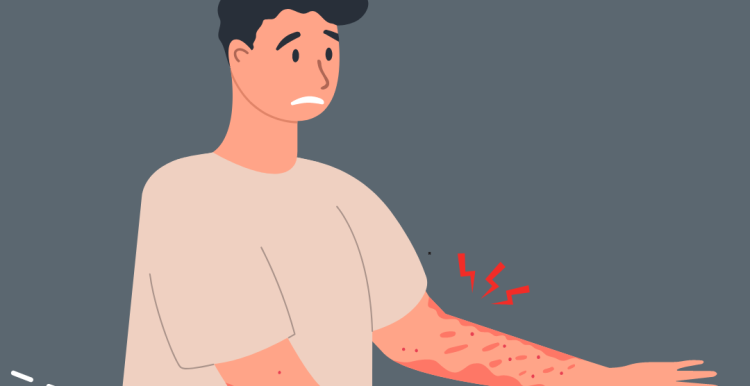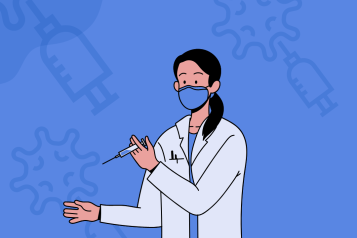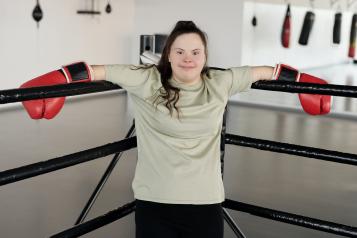Psoriasis Awareness Month

It affects around 2% of people and causes flaky patches of skin which form scales.
It can start at any age, but most often develops in adults between 20 and 30 years old and between 50 and 60 years old. It affects men and women equally.
The severity of psoriasis varies greatly from person to person. For some it's just a minor irritation, but for others it can have a big impact on their quality of life.
Why does it happen?
Skin cells are normally made and replaced every 3 to 4 weeks, but for people with psoriasis this process only takes about 3 to 7 days meaning you have more skin cells than you need.
Although it’s not fully understood why this happens, it's thought to be related to a problem with the immune system.
What are the main symptoms?
Psoriasis causes patches of skin that are dry and covered in scales.
On brown, black and white skin the patches can look pink or red, and the scales white or silvery. On brown and black skin, the patches can also look purple or dark brown, and the scales may look grey.
There are several different types of psoriasis. Many people have only 1 type at a time, although you can have 2 different types together. One type may change into another or become more severe. Most cases of psoriasis go through cycles, causing problems for a few weeks or months before easing or stopping.
How can it be treated?
There's no cure for psoriasis, but a range of treatments can improve symptoms and the appearance of skin patches.
In most cases, the first treatment used will be a topical treatment, such as vitamin D analogues or topical corticosteroids. Topical treatments are creams and ointments applied to the skin.
If these are not effective, or your condition is more severe, a treatment called phototherapy may be used. Phototherapy involves exposing your skin to certain types of ultraviolet light.


